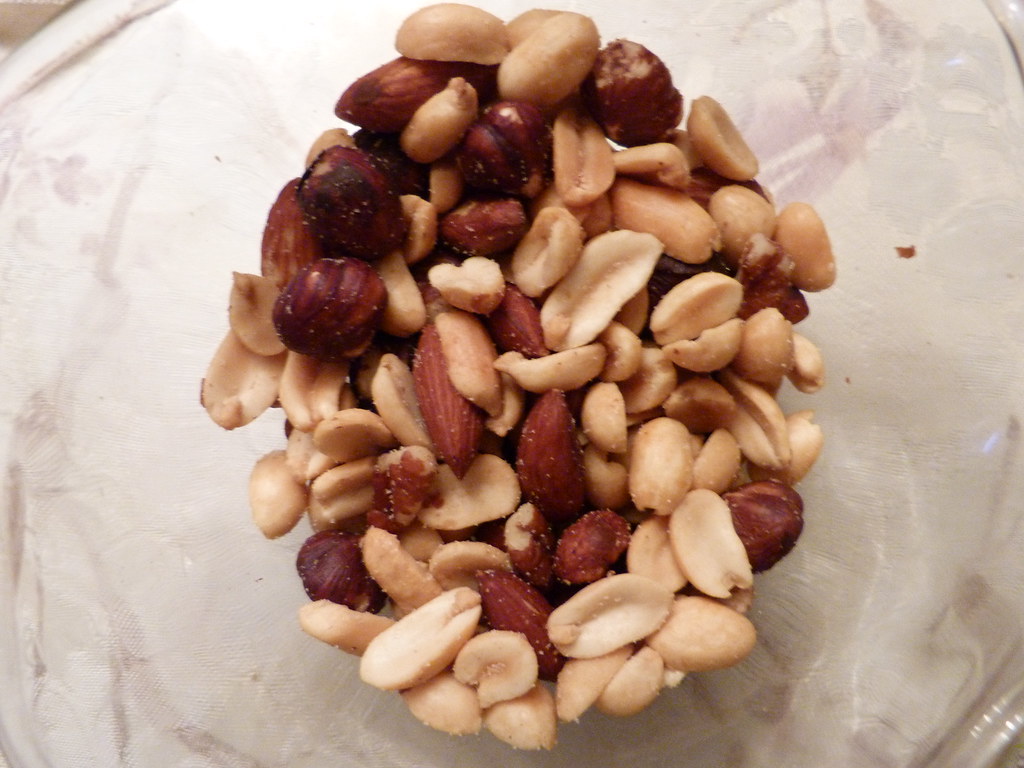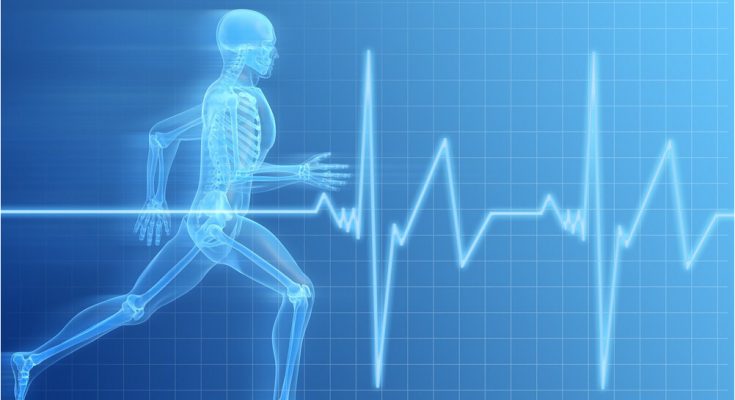We are a nation under threat; not from nuclear war or an invasion by a foreign power (although these aren’t impossibilities) but rather from health-related problems such as obesity, heart disease, diabetes and hypertension. With statistical data coming out yearly about just how dire the situation in which we have found ourselves, individuals are taking matters into their own hands and making health and nutrition changes to their lives. But the more information we find, the more confused we become as even qualified experts vary in their opinions of what’s good or bad for us. However, research has been pretty consistent when it comes to a number of wellness tips. Here are 20 health and nutrition tips that are supported by science.
Contents
- 1 1. Don’t drink sugar calories
- 2 2. Eat nuts
- 3 3. Avoid processed junk food (eat real food)
- 4 4.Don’t fear coffee
- 5 5. Eat fatty fish
- 6 6. Get enough sleep
- 7 7. Take care of your gut health with probiotics and fiber
- 8 8. Drink some water, especially before meals
- 9 9. Don’t overcook or burn your meat
- 10 10. Take vitamin D if you don’t get much sun exposure
- 11 11. Make sure to eat enough protein
- 12 12. Do some cardio
- 13 13. Use extra virgin olive oil
- 14 14. Don’t eat a lot of refined carbs
- 15 16. Lift heavy things
- 16 17. Use plenty of herbs and spices
- 17 19. If you have excess belly fat, get rid of it
- 18 20. Take care of your relationships
1. Don’t drink sugar calories
 Sugar drinks can be extremely detrimental to your health, even more so than solid foods, because the brain measures the calories from liquid sugar a bit differently. As a result, you may actually end up taking in more total calories when drinking sugars. Soda and fruit juices contain loads of sugar and are strongly linked to obesity, type 2 diabetes, heart disease and many other health problems.
Sugar drinks can be extremely detrimental to your health, even more so than solid foods, because the brain measures the calories from liquid sugar a bit differently. As a result, you may actually end up taking in more total calories when drinking sugars. Soda and fruit juices contain loads of sugar and are strongly linked to obesity, type 2 diabetes, heart disease and many other health problems.
2. Eat nuts
 Nuts may contain high levels of fat but they are incredibly nutritious and healthy. Packed with magnesium, vitamin E and various other nutrients, nut are a healthy choice for a snack. They can help you lose weight and may even help in the fight against type 2 diabetes and heart disease. Additionally, 10 to 15% of the calories found in nuts are not absorbed by the body and it may increase your metabolism. So what’s the best ones? Well, studies have shown almonds have increased weight loss by 62% when compared to complex carbs so I believe this is a good place to start.
Nuts may contain high levels of fat but they are incredibly nutritious and healthy. Packed with magnesium, vitamin E and various other nutrients, nut are a healthy choice for a snack. They can help you lose weight and may even help in the fight against type 2 diabetes and heart disease. Additionally, 10 to 15% of the calories found in nuts are not absorbed by the body and it may increase your metabolism. So what’s the best ones? Well, studies have shown almonds have increased weight loss by 62% when compared to complex carbs so I believe this is a good place to start.
3. Avoid processed junk food (eat real food)
 It’s no secret that processed foods are bad for you but processed junk food may be even worse. These foods are basically empty calories, with low fiber, protein, and nutritional value. Instead, they are engineered to trigger your pleasure centers, tricking you into overeating. It’s recommended that you avoid them as much as possible.
It’s no secret that processed foods are bad for you but processed junk food may be even worse. These foods are basically empty calories, with low fiber, protein, and nutritional value. Instead, they are engineered to trigger your pleasure centers, tricking you into overeating. It’s recommended that you avoid them as much as possible.
4.Don’t fear coffee
 This tip is a bit controversial with there being so many varying opinions on the subject. We are often warned to restrict our coffee intake due to the level of caffeine in the beverage. However studies have shown that coffee is actually very healthy. It contains high quantities of antioxidants and coffee intake has been linked to longevity a d a reduced risk of type 2 diabetes., Parkinson’s and Alzheimer’s Diseases and a host of other illnesses.
This tip is a bit controversial with there being so many varying opinions on the subject. We are often warned to restrict our coffee intake due to the level of caffeine in the beverage. However studies have shown that coffee is actually very healthy. It contains high quantities of antioxidants and coffee intake has been linked to longevity a d a reduced risk of type 2 diabetes., Parkinson’s and Alzheimer’s Diseases and a host of other illnesses.
5. Eat fatty fish
 Some people aren’t lovers of fish but it is a great source of high-quality protein and healthy fat. Fatty fish such as salmon is quite loaded with omega-3 fatty acids and various nutrients. There are studies which have shown that there is a correlation between eating high quantities of fish and the lowering of several conditions, namely heart disease, dementia and depression.
Some people aren’t lovers of fish but it is a great source of high-quality protein and healthy fat. Fatty fish such as salmon is quite loaded with omega-3 fatty acids and various nutrients. There are studies which have shown that there is a correlation between eating high quantities of fish and the lowering of several conditions, namely heart disease, dementia and depression.
6. Get enough sleep
 This particular tip is often overlooked but is so very important: Get Enough Sleep! Poor sleeping habits can be responsible for driving insulin resistance, disrupting your appetite and reducing your physical and mental performance. Persons who do not get enough sleep are more likely to gain weight and suffer from obesity. One tip to getting more sleep is to avoid bright lights in the evening. Exposure to these lights can disrupt the production of the sleep hormone, melanin. So either turn off the laptop and put down that or invest in a pair of amber-tinted glasses that block blue light from entering your eyes.
This particular tip is often overlooked but is so very important: Get Enough Sleep! Poor sleeping habits can be responsible for driving insulin resistance, disrupting your appetite and reducing your physical and mental performance. Persons who do not get enough sleep are more likely to gain weight and suffer from obesity. One tip to getting more sleep is to avoid bright lights in the evening. Exposure to these lights can disrupt the production of the sleep hormone, melanin. So either turn off the laptop and put down that or invest in a pair of amber-tinted glasses that block blue light from entering your eyes.
7. Take care of your gut health with probiotics and fiber
 Increasing your fiber in take is such an essential part of healthy living. Within your gut are bacteria that are extremely important to your overall health. If there is a disruption, chronic conditions such as obesity may result. However, if you improve your gut health by eating probiotics foods like yogurt and sauerkraut, taking pro-bionic supplements and eating plenty of fiber, then you lower your risk of developing these conditions.
Increasing your fiber in take is such an essential part of healthy living. Within your gut are bacteria that are extremely important to your overall health. If there is a disruption, chronic conditions such as obesity may result. However, if you improve your gut health by eating probiotics foods like yogurt and sauerkraut, taking pro-bionic supplements and eating plenty of fiber, then you lower your risk of developing these conditions.
8. Drink some water, especially before meals
 We really shouldn’t even have to mention this one, as it goes without saying but some people definitely need reminding. We must drink enough water; doing so can have numerous health benefits. Our bodies are made up mostly of water and it is essential to replenish what we lose throughout the day. Drinking enough water can increase your metabolism and help you burn calories. The best time to do this is before meals.
We really shouldn’t even have to mention this one, as it goes without saying but some people definitely need reminding. We must drink enough water; doing so can have numerous health benefits. Our bodies are made up mostly of water and it is essential to replenish what we lose throughout the day. Drinking enough water can increase your metabolism and help you burn calories. The best time to do this is before meals.
9. Don’t overcook or burn your meat
 We all love a nice, juicy piece of meat to go with our lunch or dinner (well those of us that eat meat anyway). Meat is very high in protein and is loaded with various important nutrients. When preparing your meats, try not to overcook for burn it as this may lead to the formation of harmful compounds that increase your risk of cancer.
We all love a nice, juicy piece of meat to go with our lunch or dinner (well those of us that eat meat anyway). Meat is very high in protein and is loaded with various important nutrients. When preparing your meats, try not to overcook for burn it as this may lead to the formation of harmful compounds that increase your risk of cancer.
10. Take vitamin D if you don’t get much sun exposure
 Did you know that more than 40% of residents in the U.S. are not getting enough sunlight? That can be hard to believe considering some of the scorching temperatures that we have been experiencing over that last couple of years. But even with adequate sunshine, many people avoid it or their lifestyles just don’t make way for adequate exposure. Sunlight is a great source of Vitamin D which is beneficial for improved bone health, increased strength, reduced depression symptoms and a lower risk of cancer. If you are one of the millions who do not get enough sunlight exposure, you can take Vitamin D supplements as an alternative.
Did you know that more than 40% of residents in the U.S. are not getting enough sunlight? That can be hard to believe considering some of the scorching temperatures that we have been experiencing over that last couple of years. But even with adequate sunshine, many people avoid it or their lifestyles just don’t make way for adequate exposure. Sunlight is a great source of Vitamin D which is beneficial for improved bone health, increased strength, reduced depression symptoms and a lower risk of cancer. If you are one of the millions who do not get enough sunlight exposure, you can take Vitamin D supplements as an alternative.
11. Make sure to eat enough protein
 Adequate protein intake is essential for optimal health. Not only is it important for weight loss by boosting your metabolism and making you feel more full and thus eating less, but it is also linked to lower blood sugar and blood pressure levels. A good source of protein is eggs. Labelled as “nature’s multivitamin, whole eggs are extreme nutritious. Eggs have gotten a bad reputation because of their cholesterol content but in reality, studies have shown that they have no effect on blood cholesterol in the majority of people nor was there an association with heart disease risk.
Adequate protein intake is essential for optimal health. Not only is it important for weight loss by boosting your metabolism and making you feel more full and thus eating less, but it is also linked to lower blood sugar and blood pressure levels. A good source of protein is eggs. Labelled as “nature’s multivitamin, whole eggs are extreme nutritious. Eggs have gotten a bad reputation because of their cholesterol content but in reality, studies have shown that they have no effect on blood cholesterol in the majority of people nor was there an association with heart disease risk.
12. Do some cardio
 Are you interested in exercising but you don’t know where to start? We would suggest doing some cardio or aerobic exercises. This is one of the best things you can do for your mental and physical health. Aerobics will help to reduce belly fat and improve your metabolic health. Not to mention it can be so much fun, thus boosting your overall mood.
Are you interested in exercising but you don’t know where to start? We would suggest doing some cardio or aerobic exercises. This is one of the best things you can do for your mental and physical health. Aerobics will help to reduce belly fat and improve your metabolic health. Not to mention it can be so much fun, thus boosting your overall mood.
13. Use extra virgin olive oil
 Cooking oil is often viewed as harmful to your health so we suggest switching to extra virgin olive oil as it is of the healthiest vegetable oils. This is oils contains high quantities of monounsaturated fats and powerful antioxidants which are beneficial in the fight against inflammation. It can also improve the health of your heart, reducing the risk of heart attack and stroke.
Cooking oil is often viewed as harmful to your health so we suggest switching to extra virgin olive oil as it is of the healthiest vegetable oils. This is oils contains high quantities of monounsaturated fats and powerful antioxidants which are beneficial in the fight against inflammation. It can also improve the health of your heart, reducing the risk of heart attack and stroke.
14. Don’t eat a lot of refined carbs
 Some of us are extremely guilty of carb-loading which is basically eating alot of carbs. But not are carbs are the same and some should be avoided where possible. Refined carbs are usually high processed to remove the fibre and as we mentioned previously, fiber is good for gut health. As with junk food, refined carbs are low in nutrients and are harmful to your health if eaten in excess.
Some of us are extremely guilty of carb-loading which is basically eating alot of carbs. But not are carbs are the same and some should be avoided where possible. Refined carbs are usually high processed to remove the fibre and as we mentioned previously, fiber is good for gut health. As with junk food, refined carbs are low in nutrients and are harmful to your health if eaten in excess.
15. Don’t fear saturated fat The debate on the harm and benefit of saturated fats is another controversial topic. While it is true that saturated fat can raise cholesterol levels, it is also true that it increases your HDL (good) cholesterol and decreases your LDL (bad) cholesterol. This in turn is linked to lowering the risk of heart disease.
The debate on the harm and benefit of saturated fats is another controversial topic. While it is true that saturated fat can raise cholesterol levels, it is also true that it increases your HDL (good) cholesterol and decreases your LDL (bad) cholesterol. This in turn is linked to lowering the risk of heart disease.
16. Lift heavy things
 Building on a foundation of aerobics, why not add lifting weights to your workout regimen. It is a great way to strengthen your muscles and improve your body composition. It may also be correlated to improving your metabolic health, including increased insulin sensitivity. Lift weights may be the best approach but you can also try bodyweight exercises such as planking and chin ups, if that is more up your alley.
Building on a foundation of aerobics, why not add lifting weights to your workout regimen. It is a great way to strengthen your muscles and improve your body composition. It may also be correlated to improving your metabolic health, including increased insulin sensitivity. Lift weights may be the best approach but you can also try bodyweight exercises such as planking and chin ups, if that is more up your alley.
17. Use plenty of herbs and spices
 I personally love to cook using herbs and spices. It adds a component to the meal that just isn’t there without. But there are some very incredible healthy herbs and spices that we all need to introduce in our cooking. For instance, ginger and turmeric are some of the best for their potent anti-inflammatory and antioxidant effects. Of course, you would therefore expect their health benefits to be substantial.
I personally love to cook using herbs and spices. It adds a component to the meal that just isn’t there without. But there are some very incredible healthy herbs and spices that we all need to introduce in our cooking. For instance, ginger and turmeric are some of the best for their potent anti-inflammatory and antioxidant effects. Of course, you would therefore expect their health benefits to be substantial.
18. Don’t go on a diet You’re probably sitting there going ….”What????” But honestly diets are not very effective and rarely work in the long term. Rather dieting can actually cause you to gain weight in the future. It would be better to adopt a healthier lifestyle rather than dieting. Pay attention to what you are putting into your body; focus on nourishment as opposed to deprivation. You could try tracking your food intake so you know just how many calories you are putting into your body. This doesn’t have to be done all the time, but just so you can get an idea of how much food you should really be eating. This along with a good exercise regimen will eliminate the need for elaborate diet plans.
You’re probably sitting there going ….”What????” But honestly diets are not very effective and rarely work in the long term. Rather dieting can actually cause you to gain weight in the future. It would be better to adopt a healthier lifestyle rather than dieting. Pay attention to what you are putting into your body; focus on nourishment as opposed to deprivation. You could try tracking your food intake so you know just how many calories you are putting into your body. This doesn’t have to be done all the time, but just so you can get an idea of how much food you should really be eating. This along with a good exercise regimen will eliminate the need for elaborate diet plans.
19. If you have excess belly fat, get rid of it
 Excessive body fat is harmful to your health but more so when it accumulates around your belly area. This is because is settled round your organs and is strongly linked to metabolic diseases. It is therefore essential that to monitor your waist size as this may be a stronger marker of your health than your weight. One solution would be to cut the number of carbs and increase tour protein and fibre intake.
Excessive body fat is harmful to your health but more so when it accumulates around your belly area. This is because is settled round your organs and is strongly linked to metabolic diseases. It is therefore essential that to monitor your waist size as this may be a stronger marker of your health than your weight. One solution would be to cut the number of carbs and increase tour protein and fibre intake.
20. Take care of your relationships
 Your mental well being is just as important as your physical health and social relationships can have an impact on both. It is therefore essential that we engage in relationships with close friends and family as studies have shown that people who do so live longer and healthier lives,
Your mental well being is just as important as your physical health and social relationships can have an impact on both. It is therefore essential that we engage in relationships with close friends and family as studies have shown that people who do so live longer and healthier lives,
There are many different steps you can take to improve our diet and wellness but if you are looking for a total healthy lifestyle change, then it is important to focus not only on the foods you eat but also on exercise, sleep and social relationships.

